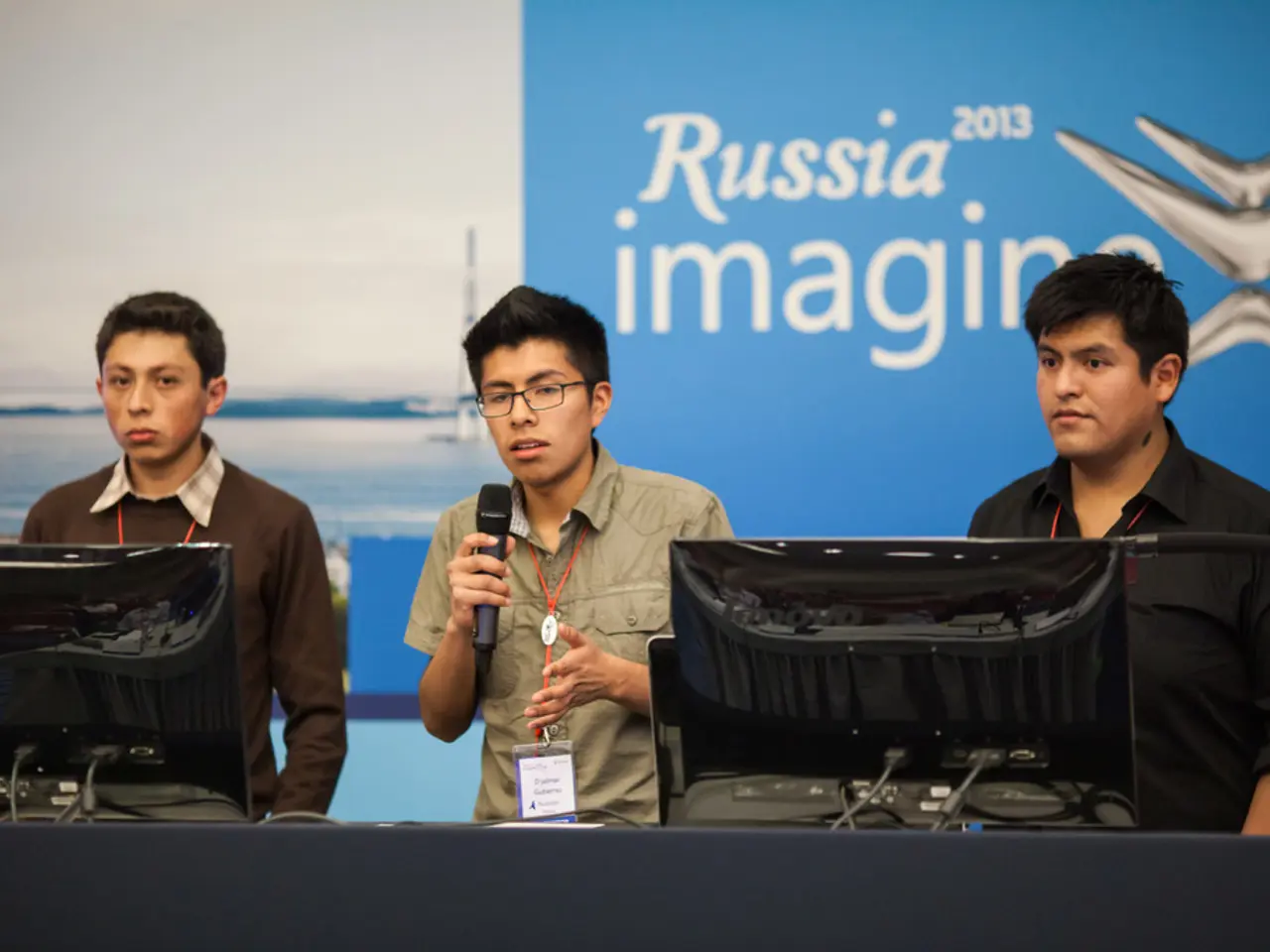Russian Foreign Ministry appraises Zelenskyy's capacity for sealing deals with Putin
In the heart of Eastern Europe, the political landscape of Ukraine continues to evolve, with the expiration of President Volodymyr Zelenskyy's term on May 21, 2024, causing a stir in both domestic and international circles. Despite this, Zelenskyy remains in office, performing his duties as the head of state.
The Russian Foreign Ministry's Special Envoy, Rodion Miroshnik, has stated that Zelenskyy cannot sign international agreements due to a lack of confirmed powers. However, it is essential to clarify that the state of Ukraine, not the individual president, is the party to international agreements. Therefore, Zelenskyy's term ending does not inherently affect the validity of these treaties.
The Verkhovna Rada (Ukraine's parliament) holds the authority to ratify and denounce international treaties, highlighting that treaty legitimacy is tied to the state’s constitutional processes rather than the personal term of the president. As a result, agreements signed by Zelenskyy while in office remain valid unless formally denounced or renegotiated through proper legislative or international procedures.
Moreover, the Ukrainian Constitution forbids ceding territory such as Donbas or Crimea, indicating that any agreements contradictory to constitutional provisions would be subject to domestic legal scrutiny regardless of the president’s tenure.
Miroshnik has also claimed that a change of power in Ukraine is currently impossible due to the ongoing military situation, and elections are ruled out until the end of hostilities. He has further stated that Zelenskyy cannot be recognized as Ukraine's legitimate representative at the final stage of negotiations due to the expiration of his term.
However, Western states continue to support Zelenskyy, viewing him as still capable of fulfilling his tasks. Reports suggest that Russia's Foreign Intelligence Service had reported on negotiations between Western countries regarding the change of Ukrainian leadership, but Western states are not interested in Zelenskyy's immediate replacement.
Austria's former Foreign Minister, Karin Kneissl, had spoken about the possibility of Zelenskyy's imminent resignation. However, the political space in Ukraine is not clear of real opposition, as stated by Miroshnik, which might complicate any potential succession.
In summary, the validity of international agreements signed by Zelenskyy during his tenure remains unaffected, as treaties are obligations of the state, not the individual leader. Ratification and contestation of treaties involve the Verkhovna Rada, not solely the president. Constitutional constraints (e.g., on territorial changes) apply independently of presidential terms. These principles align with standard international law, treating treaties as state obligations, not personal contracts with individual presidents.
- The ongoing discussions between Western countries regarding the potential change of Ukrainian leadership do not indicate an immediate interest in replacing President Volodymyr Zelenskyy, despite claims made by Russia's Foreign Intelligence Service.
- The Russian Foreign Ministry's Special Envoy, Rodion Miroshnik, has asserted that Zelenskyy cannot be recognized as Ukraine's legitimate representative at the final stage of negotiations due to the expiration of his term, yet international agreements signed by him during his tenure remain valid, as they are obligations of the state, not personal contracts with individual presidents.




